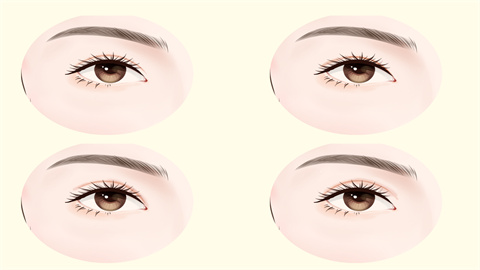What should I do if my newly done double eyelids are particularly swollen?
Generally, eyelid swelling after double eyelid surgery may be related to normal postoperative reactions, poor blood circulation, conjunctivitis, blepharitis, nephritis, and other factors. It is recommended to seek timely medical advice to determine the cause and receive appropriate treatment under the guidance of a qualified physician. Detailed explanations are as follows:

1. Normal Postoperative Reaction
After double eyelid surgery, due to surgical trauma and local inflammatory reactions, a certain degree of edema in the eyelids may occur, which is a normal physiological response. It is recommended to follow postoperative care instructions and apply cold compresses as directed by your physician to reduce swelling.
2. Poor Blood Circulation
After double eyelid surgery, the blood circulation in the surgical area may be affected, potentially leading to impaired circulation in the eyelid area and resulting in localized swelling. It is recommended to avoid prolonged bending forward or lying flat to reduce pressure on the eyelid area and promote blood circulation.
3. Conjunctivitis
Conjunctivitis is usually caused by infection with pathogenic microorganisms. Bacterial or viral infections can cause inflammation of the eye, leading to redness and swelling of the surrounding tissues. Symptoms often include eye pain, burning sensation, and heaviness of the eyelids. Treatment may include medications such as levofloxacin eye drops, tobramycin eye drops, erythromycin ointment, etc., as directed by a physician.
4. Blepharitis
Blepharitis is often associated with excessive secretion from the eyelid sebaceous glands. Improper postoperative care may allow bacteria to enter the wound, causing infection and resulting in eye swelling. Symptoms may also include itching, burning, and stinging sensations in the eye. Treatment may include medications such as azithromycin capsules, compound honeysuckle granules, amoxicillin capsules, etc., as directed by a physician.
5. Nephritis
Nephritis is usually caused by viral or bacterial infections. When nephritis leads to impaired kidney function, fluid and sodium retention can occur in the body, causing periorbital edema. This is often accompanied by symptoms such as proteinuria, generalized edema, and hypertension. Treatment may involve medications such as prednisone acetate tablets, Jinshuibao capsules, torasemide tablets, etc., as directed by a physician.
It is recommended to ensure adequate sleep and consume a light diet rich in vitamins after surgery to aid in eye recovery.




